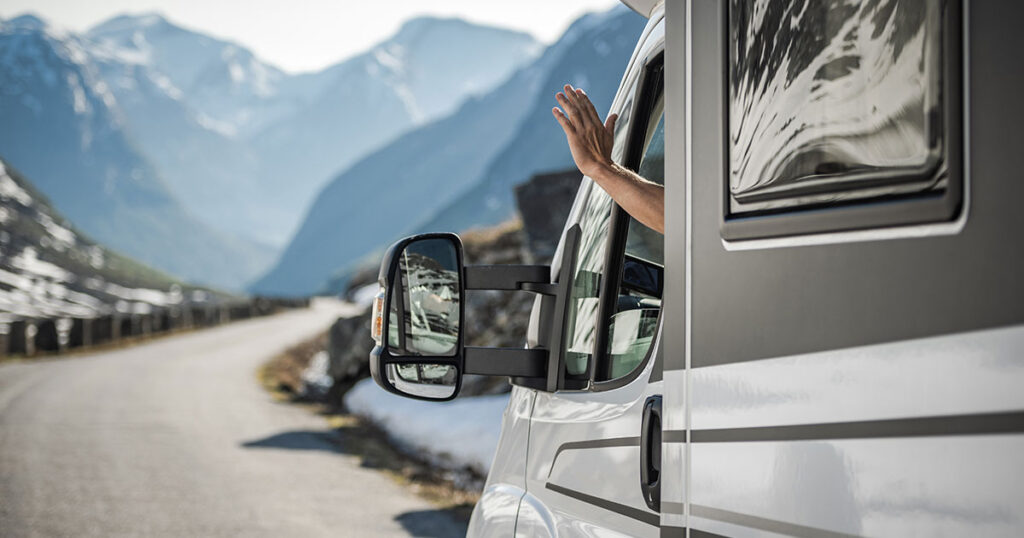If you’re considering RV living, you might know about the “3 3 3 rule.” This popular guideline helps you maximize your time on the road while keeping your experience simple and stress-free.
What exactly is the 3 3 3 rule?
It’s a simple and practical guideline that breaks down into three main components.
- Travel no more than 300 miles in a day:
One of the biggest appeals of RV living is the freedom to roam and explore new places. However, driving long distances daily can quickly lead to fatigue and burnout. Limiting your daily travel to 300 miles or less allows you to enjoy the journey and take in the sights along the way without feeling rushed. - Stay at a location for at least three nights:
Staying in one place for at least three nights lets you fully immerse yourself in the local culture and scenery, while also giving you time to relax before continuing your travels. - Take three days off the road each week:
Even if you love the nomadic lifestyle, remember to take breaks. Aim for three days off each week to relax and recharge, and plan these days ahead to enjoy your surroundings.
In addition to its three main components, the 3-3-3 rule encourages RVers to prioritize safety, plan ahead, and stay flexible. While knowing your limits is important, being too rigid can hinder exploration. Striking a balance is essential.
Overall, the 3 3 3 rule is a valuable guideline for RV living that can help you strike the perfect balance between adventure and relaxation. It’s a reassuring reminder to prioritize your well-being and make the most of your travels. Whether you’re a full-time RVer or on a weekend getaway, use this rule for a more enjoyable trip.
5 RV mistakes to avoid:
Not planning ahead
A common mistake new RV owners make is over-planning their trips. This can result in difficulties like not finding a campsite or running out of supplies. To prevent this, plan your route, reserve campgrounds, and pack essential supplies before you start your journey.

Overpacking
New RV owners often make the mistake of overpacking. While it’s tempting to bring everything, RV space is limited. Pack only the essentials to save space and simplify your travels.
Not leveling the RV
A critical aspect of RVing that newbies often overlook is leveling the RV. If your RV is leveled, it can lead to issues such as appliances not working correctly or even damage to your RV. Invest in a leveling kit and take the time to level your RV before setting up camp.
Ignoring maintenance
Just like any vehicle, RVs require regular maintenance to keep them running smoothly. Ignoring maintenance tasks can lead to costly repairs down the line. Make sure to follow the manufacturer’s recommendations for maintenance, such as checking the roof for leaks, servicing the engine, and inspecting the tires before each trip.
Driving too fast
Driving an RV differs from driving a car. RVs are larger and heavier, requiring more time and space to stop. One common mistake newbies make is moving too fast, which can lead to accidents on the road. Make sure to drive safely and leave plenty of room between you and the vehicle in front of you.
You can have a safe and enjoyable RVing experience by avoiding these common RV mistakes. Remember to plan ahead, pack light, level your RV, keep up with maintenance, and drive safely on the road. Happy RVing!


